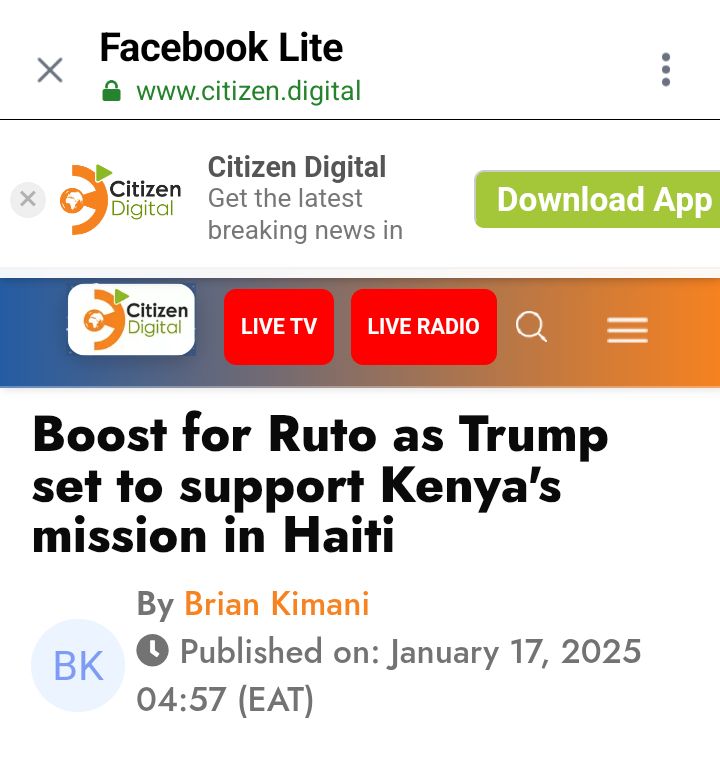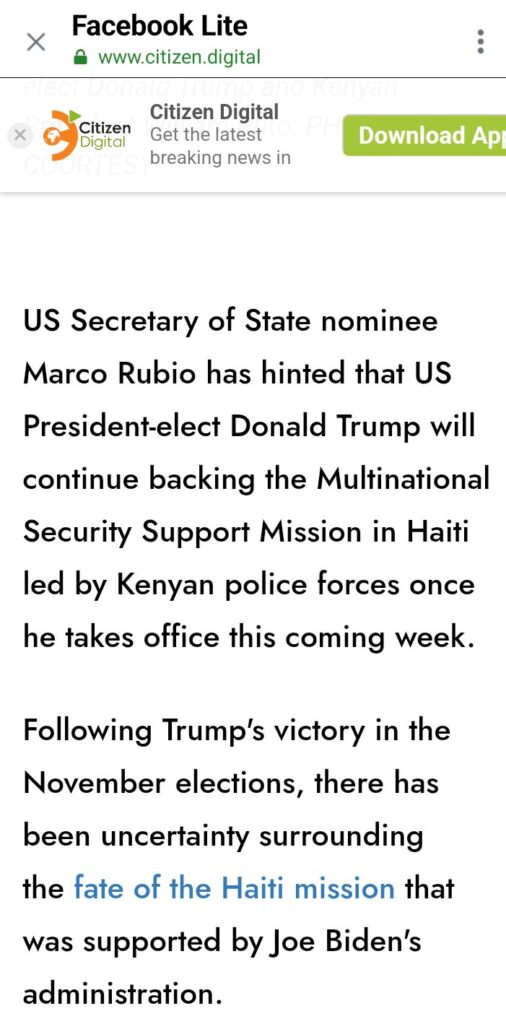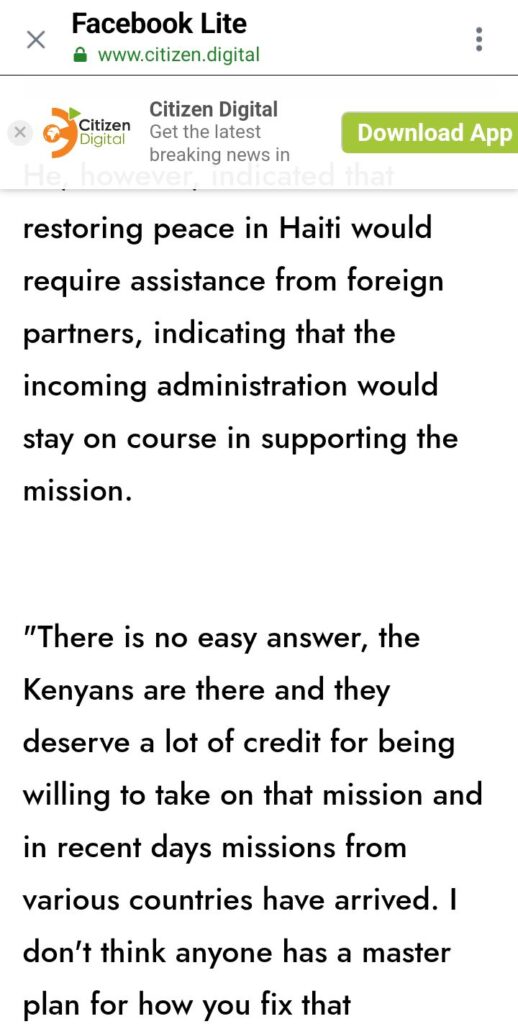As per reports by Citizen Digital, US Secretary of State nominee Marco Rubio has suggested that the incoming administration under President-elect Donald Trump will continue supporting the Multinational Security Support Mission (MSS) in Haiti, led by Kenyan police forces.

The mission, which was initially supported by the Biden administration, has raised concerns about its future with the change in US leadership.
Rubio, speaking during a Senate Foreign Relations Committee meeting, commended Kenya’s efforts in leading the mission, especially given the financial challenges faced by the Kenyan forces.
He recognized the difficulty of the task but indicated that the US would remain committed to supporting the mission under Trump’s leadership.

The situation in Haiti remains volatile, and Rubio acknowledged that restoring peace in the country would require more than just the involvement of Kenyan forces.
While Kenya’s police have played a key role, he stressed the importance of international collaboration in bringing stability to the island nation.
Rubio pointed out that peace in Haiti cannot be restored solely through a US military intervention.
Instead, foreign partners in the Western Hemisphere, including those from Latin America and the Caribbean, would need to contribute to the peacekeeping efforts.

“There is no easy answer, the Kenyans are there and they deserve a lot of credit for being willing to take on that mission,” Rubio stated.
He added that establishing a baseline security level is essential before considering the formation of a legitimate transitional government that could lead Haiti to elections.
The Biden administration had pushed for the MSS mission to be transformed into a formal United Nations peacekeeping mission, which would ensure more stable and predictable funding.
Reports indicate that the United States has already provided over Ksh.77 billion for the mission, despite facing stiff opposition from some Republican lawmakers in the US Parliament.
The current situation relies on voluntary contributions, which are insufficient for sustaining long-term operations.
However, transitioning the mission to the UN peacekeeping model would make it the responsibility of all 193 UN member states to fund the mission, creating a broader base of support.
Kenya’s participation in the mission has been pivotal, with over 400 police officers deployed by mid-2024, although this is still short of the promised 1,000 officers.
Other countries, such as Guatemala, El Salvador, Jamaica, and Belize, have also contributed troops to the mission, which is critical in maintaining a level of security in Haiti.
The combined efforts of these countries aim to stabilize the country and create the conditions necessary for a transitional government to function and eventually hold elections.
The US’s continued support for the mission under Trump, as indicated by Rubio, shows the importance of international collaboration in addressing Haiti’s ongoing security crisis.


